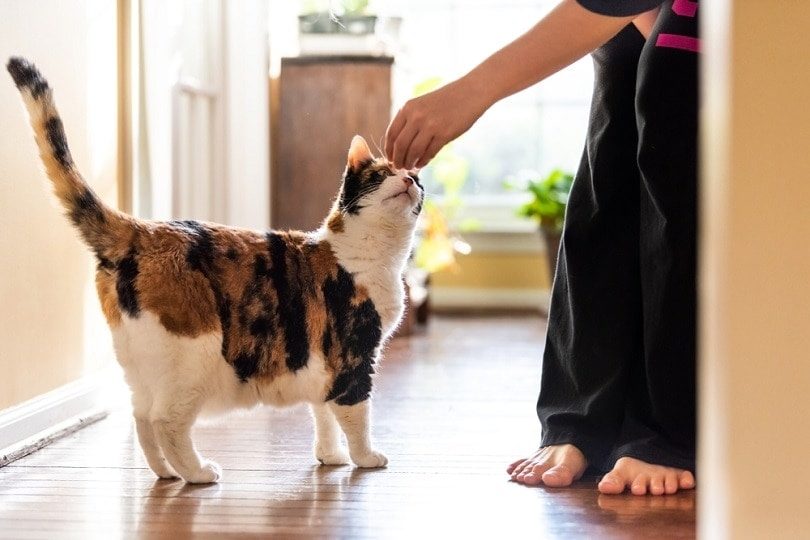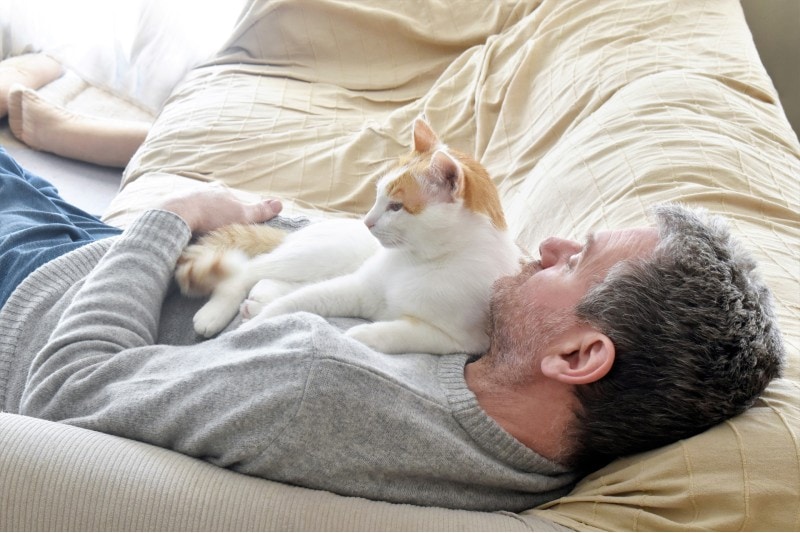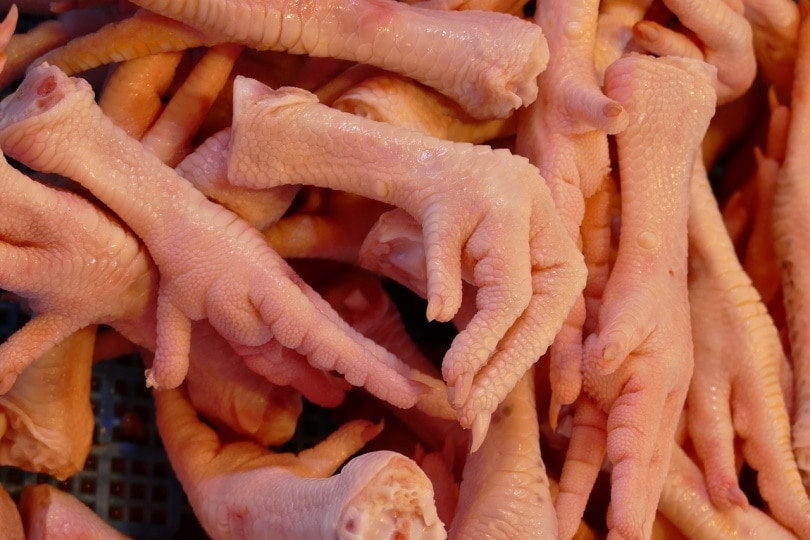Can Cats Eat Brussels Sprouts? Vet-Approved Feeding Facts

By Misty Layne
Updated on
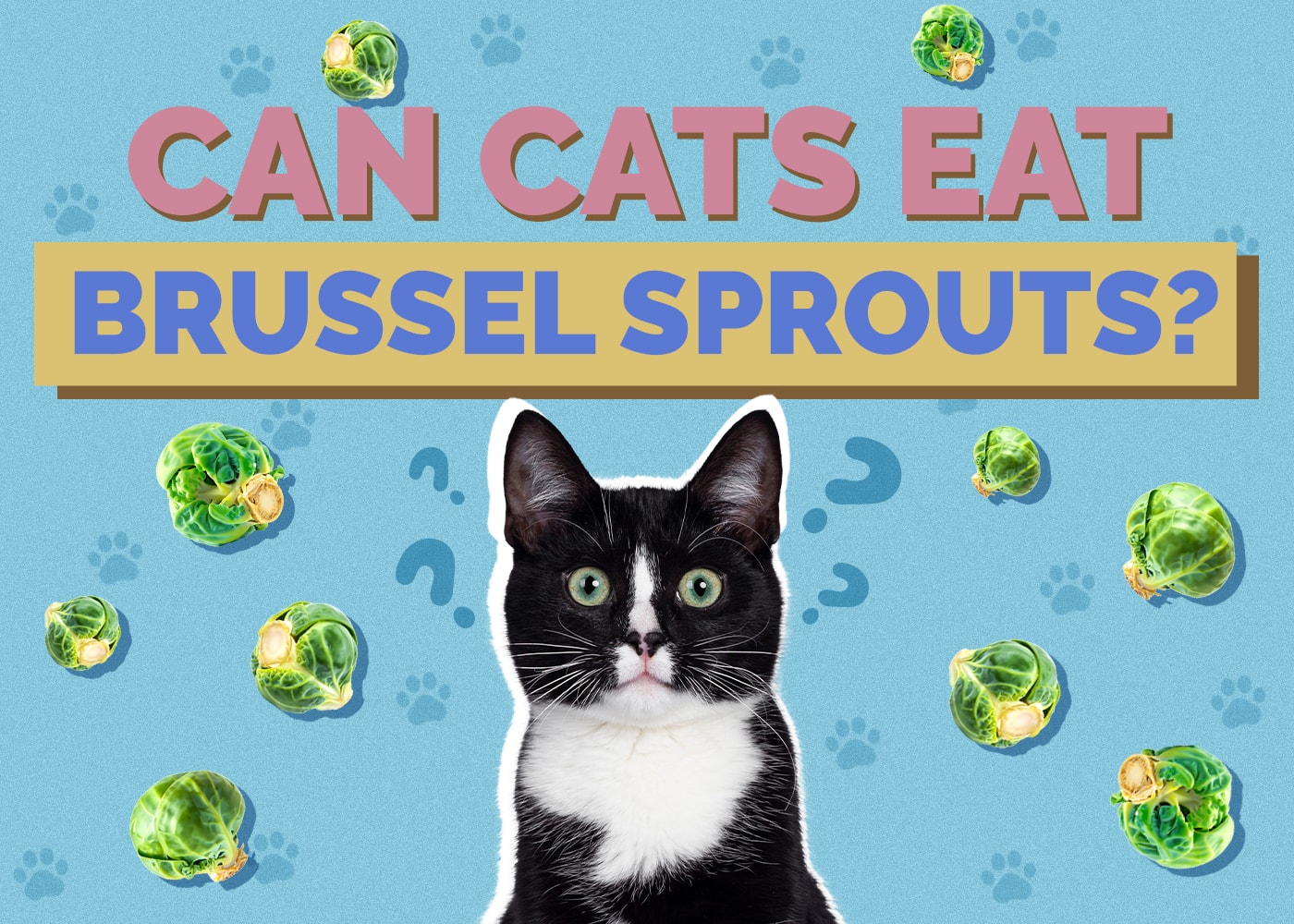
It’s tempting to sneak our cats a little treat in the form of human foods now and then. After all, if it’s something we enjoy, maybe they will too! We might even wonder whether it’s okay to supplement their diets with fruits or veggies, to make sure they’re getting all the nutrients they need. You must be careful with what food you give your cat, because some foods can be unhealthy or even toxic for them.
When it comes to vegetables, some people believe they can be given to their cats for an extra nutritional boost. If your cat is eating a high quality cat diet, they should be receiving all of the nutrients they need. But some fruits and veggies can provide a little boost. One vegetable frequently asked about is Brussels sprouts. Do Brussels sprouts provide needed nutrition to our favorite felines? Can cats even eat Brussels sprouts? The answer is yes, cats can eat Brussels sprouts! Read on to learn more.
Are Brussels Sprouts Safe for Cats to Eat?
Brussels sprouts are safe for your cat to have on occasion, though there’s a good chance your cat won’t be interested in them. Many felines find the strong smell and flavor off-putting and want nothing to do with Brussels sprouts. But, if your cat seems interested, giving them a bit won’t harm them.
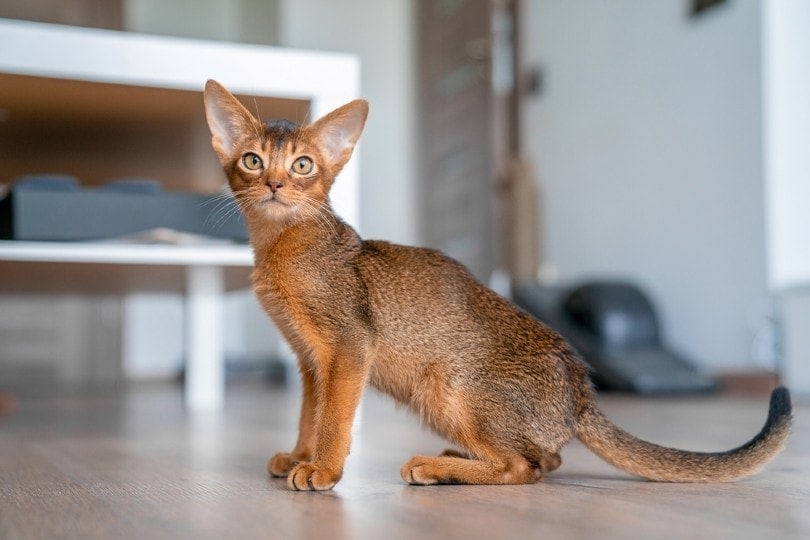
Do Brussels Sprouts Offer Health Benefits for My Cat?
Yes! Brussels sprouts can offer many health benefits for your cat, as they are a great supply of vitamins and minerals, fiber, protein, and antioxidants. Here are a few things Brussels sprouts can provide your feline friend.
Aid in Digestion
Because Brussels sprouts contain both insoluble and soluble fiber, they are great for helping to improve digestion. Insoluble fiber helps bulk up and soften the consistency of the stool, plus speeds up its movement through the intestines, making for easier bowel movements. Soluble fiber feeds the cells of the colon, provides nutrients for gut microbiota, and can improve gastric motility disorders.
That’s not all fiber may help with, though! Fiber-rich diets can also aid some cats in losing weight since fiber causes one to feel fuller for a longer period. If you mix a bit of Brussels sprouts in with your kitty’s regular food, you may find that they eat less at meals and get hungrier less often. Please discuss any diet changes with your veterinarian to make sure it’s right for your cat.
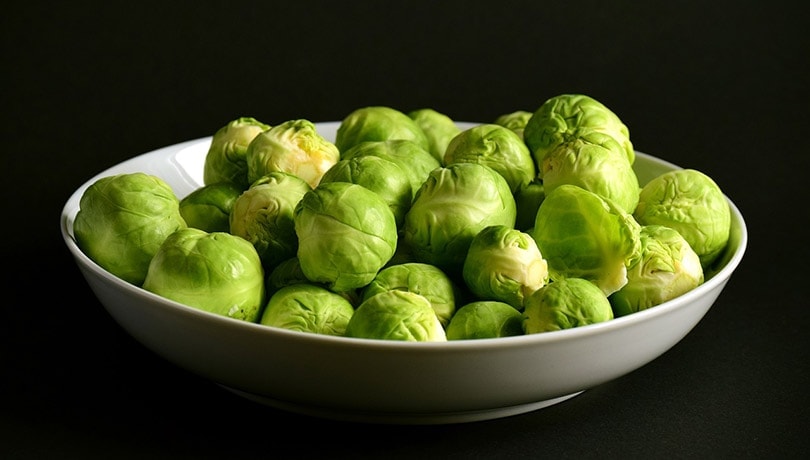
Blood Sugar Stabilization
Brussels sprouts contain the antioxidant alpha-lipoic acid, which studies have shown to lower blood sugar levels (up to 64% in studies done on animals) and reduce fasting blood glucose and insulin resistance.
Brussels sprouts also contain a fair amount of omega-3 fatty acids that are helpful in reducing insulin resistance and increasing control of glucose levels in the blood.
Benefits of Vitamin K
Brussels sprouts contain a ton of vitamin K. For a human, a half-cup of Brussel sprouts can provide approximately 137% of their daily allowance! For cats, vitamin K manages to accomplish a lot.
This vitamin aids in the healing of wounds by inducing the blood clots needed to help stop bleeding. So, if you have a tiny terror that is constantly tearing through the house and bouncing off corners, this vitamin would be vital for any injuries or cuts they may incur in their wild adventures.
Vitamin K can also promote bone growth, which is useful in helping to ward against health issues such as osteoarthritis in cats!
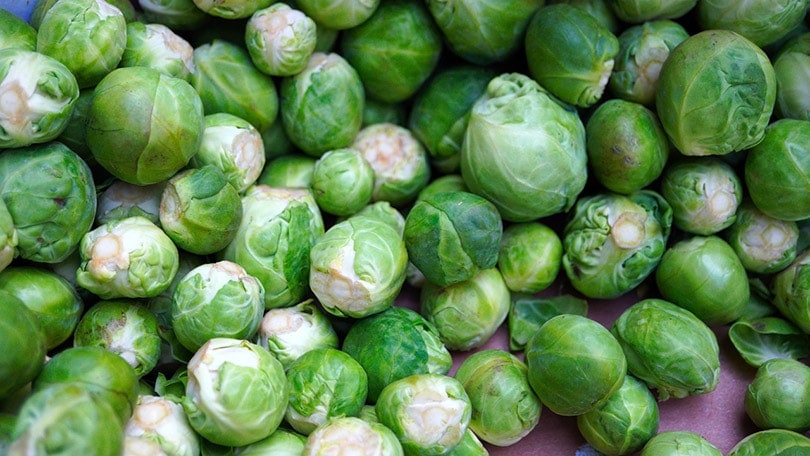
Are There Risks to Giving My Cat Brussels Sprouts?
As with most human food you give to your cat, there are a few risks you should take into consideration. As with all fresh produce, Brussels sprouts can pick up bacteria anywhere on the journey, from the farm to the grocery store to your table. If Brussels sprouts are served to your pet without being washed properly or cooked, there could be a risk of food poisoning.
Next is the fact that your kitty is an obligate carnivore that depends on meat to meet their nutritional needs, not plants. Because cats don’t eat plants very often, their gastrointestinal tract isn’t set up to digest them properly. That means introducing a vegetable to their diet could cause stomach upset, diarrhea, or vomiting.
Finally, Brussels sprouts could serve as a choking hazard due to their size. So make sure to cut them up into smaller pieces before giving them to your cat.
How Do I Feed My Cat Brussels Sprouts?
Though they can eat them raw, it’s advised you cook any Brussels sprouts you want to feed your cat. This helps reduce the risk of bacterial contamination. Cook until they are soft, and be sure to give them to your pet in bite-sized pieces to prevent the risk of choking.
And remember, whenever introducing a new food into your cat’s diet, start with a small amount to avoid stomach upset. Give them a bite or two to see how they react before giving them any more.

Conclusion
Brussels sprouts are non-toxic, and are fine for your cat to eat occasionally (though they will likely turn their nose up at them!). They can even offer some fabulous health benefits due to the many vitamins, antioxidants, and minerals they contain. If you decide to introduce Brussels sprouts into your cat’s diet, be sure to start in tiny amounts to get their stomachs used to it. Also, remember to cook the Brussels sprouts and cut them into small pieces to reduce the chance of choking.
Who knows? Maybe your feline will be one of the few that actually enjoys this vegetable!
Featured Image Credit: Skitterphoto, Pixabay



